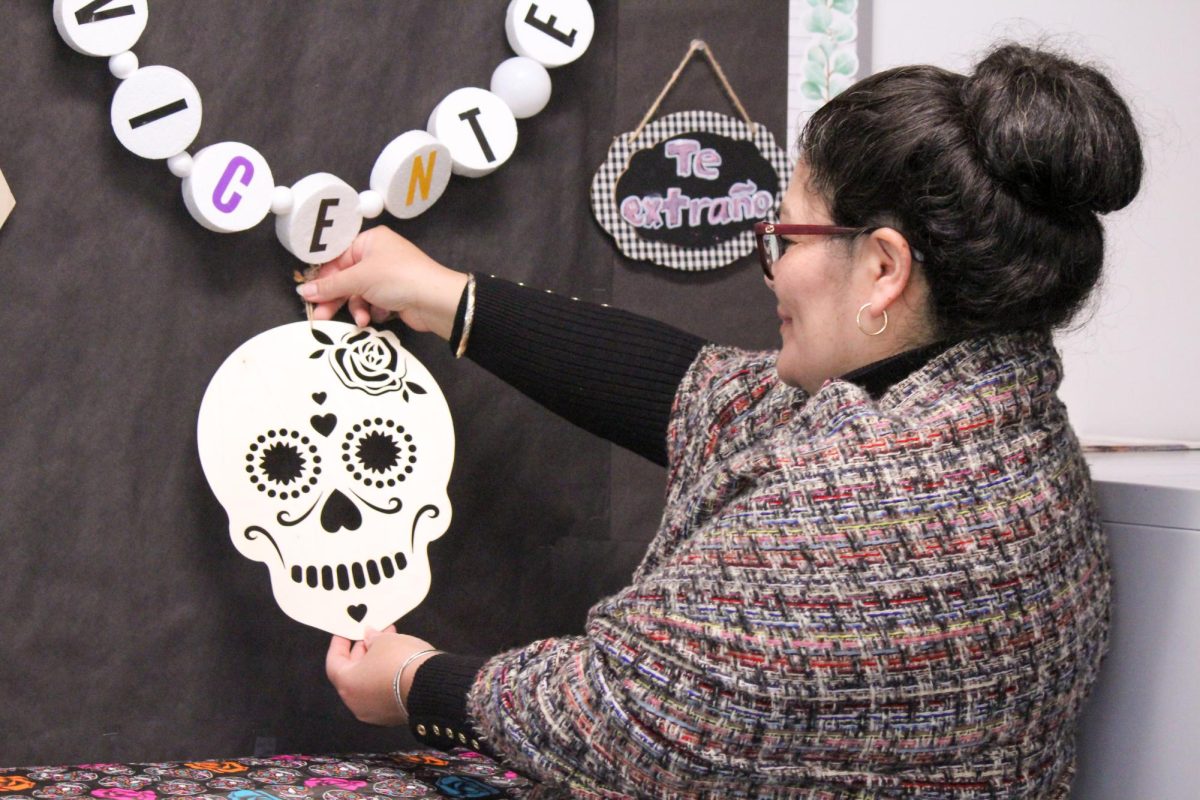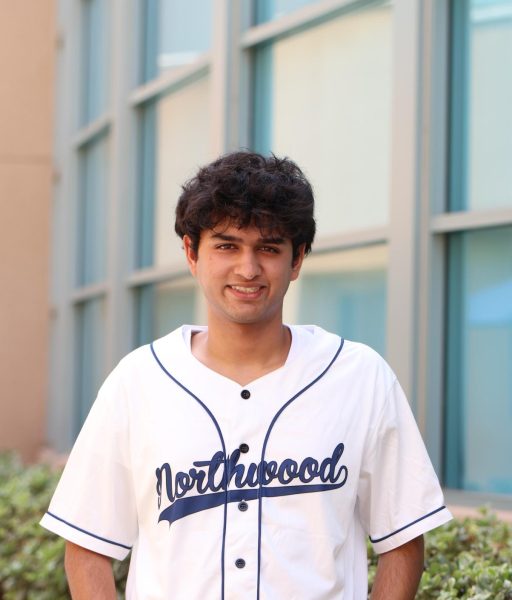Whether your celebrations involve a scrumptious birthday cake, a thoughtful present or a heartfelt card, most festivities are about honoring our loved ones. The same is true for Día de los Muertos—just in a different context. In many Hispanic cultures, families come together to preserve their loved ones’ stories during Día de los Muertos on Nov. 1-2.
Spanish teacher Haydee Vicente brings these customs to life in her classroom by setting up an ofrenda,
which is a remembrance table filled with photographs, favorite foods and objects that represent deceased loved ones. She invites her students to contribute by filling the ofrenda with fresh fruits, flowers or other trinkets her grandparents would have loved.
“I try to bring awareness about the holiday by bringing smaller versions of my own traditions to my classes,” Vicente said. “I usually talk about my own loved ones and let my students share anything they’re comfortable sharing, which really exemplifies what the holiday is about.”
While confronting grief can feel overwhelming at times, these traditions help Hispanic communities reframe loss as an opportunity to pass on the legacies of their ancestors.
“One of my favorite traditions is making the pan de muerto, which is at the center of every ofrenda and is decorated with bone-shaped pieces to represent the dead,” senior Dylan Herman said. “This treat brings back memories of my dead relatives when we all used to eat as a family. It’s as if I’m eating this bread with them because while we are eating, we all share memories about their lives.”
Students from the Hispanic Latino Student Union also make efforts to educate others about this aspect of their culture through their club meetings, which are open to anyone interested in participating.
“These past two years, my own family has started to celebrate the day a lot more, which has made it a lot of fun to also celebrate it at school,” HLSU club secretary junior Andrea Torres said. “As a club, we teach people about how in Mexican culture, death isn’t necessarily an entirely bad thing because we can celebrate the life, culture and impact that people have on us long after their deaths.”
Keeping the memories of deceased loved ones alive creates a positive outlook on life and death. The holiday can also help families feel connected to ancestors that they didn’t spend much time with.
“I think something unique that this holiday brings to our culture is that it’s not taboo to talk about those who have passed away because we are always remembering our loved ones in conversations,” Vicente said. “Especially on this day, I try to bring them up as much as possible by sharing anecdotes about my loved ones so that I can show my students what this celebration means to me and why it’s so important.”
Join HLSU in celebrating Día de los Muertos and learning more about Hispanic cultures by attending their meetings on the first Friday of every month in Room 1421 and following their Instagram @hlsu.club.





















































